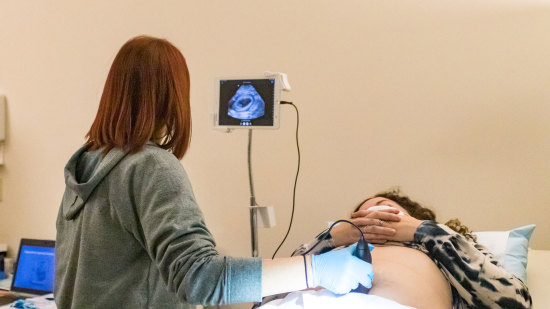With the Supreme Court decision in the Dobbs case, people suddenly have a lot to say about abortion. Much of what you might see or hear in the trending topics online comes from pro-abortion advocates saying that overturning Roe is (in their opinion) a terrible thing. In the process, they often imply (or outright claim) that pro-life people are uncaring, uninformed, or have ulterior motives. They might make you question your pro-life position or convince you that being “pro-choice” is the more enlightened, loving, Christian stance.
All the pro-abortion rhetoric you hear is based on either honest misunderstandings or misplaced priorities. Biblically, morally, and scientifically, all the facts are on the pro-life side. Christians should be unapologetically pro-life, firmly promoting equal protection for the preborn, care for women with unexpected pregnancies, and God’s design for sex and marriage.
What Abortion Is
Because of its nature, people tend to avoid talking about what abortion really is. Abortion advocates use a lot of carefully chosen terminology, from “terminating a pregnancy” to “reproductive rights,” in order to make it sound more positive and palatable. Even those of us who are opposed to abortion can be reluctant to fully call it what it is, although for a different reason: we want to be compassionate to those who have made the decision to get an abortion. If you have had an abortion, know that Jesus has paid for and offers forgiveness for any sin, and we are here to support you and care for you.
However, the fact is that abortion is a procedure that ends the life of a preborn child. That is a completely accurate definition. No matter how the procedure is done, or at what point in time it is performed, “terminating a pregnancy” means either directly or indirectly killing another human being. Abortionists may try to hide it or deny it, but that is an incontrovertible medical fact.
So, when anyone talks about negative consequences of ending abortion—even if those consequences are real—you have to weigh those in light of what abortion really is. Ask yourself this: Is there any reason why someone should be allowed to kill an innocent child? And if there was a justifiable reason to kill a child in the womb, wouldn’t that reason also have to apply to killing the child outside the womb? After all, we’re talking about the same child; just a different location and on a different day.
Pro-Abortion Arguments
To bring clarity among all the chatter, we thought it would be helpful to look at some of the pro-abortion arguments you might hear. The main intent is to help you be discerning as you communicate truth and serve with compassion. Being pro-life does not mean you are uncaring, controlling, extreme, or any of the other false accusations commonly circulated on social media.
Here are some of the most common pro-abortion claims and why they are misleading:
- My body, my choice. Women should be able to do what they want with their own bodies. However, as modern science clearly shows, an unborn child is a separate body. Abortion fully deprives that child of the ability to choose what to do with his or her body. Without abortion, adults would still fully be able to choose what to do with their bodies; but that choice comes when a man and a woman together decide to do the one thing that results in children. We all have the freedom to choose but should not use that freedom as a cover-up for evil (1 Peter 2:16).
- The child isn’t fully developed and couldn’t survive on his or her own. This statement is true, but it does not provide any reason to kill a child. If it did, that logic would also apply to ending a child’s life after he or she is born. After all, none of us are technically “fully developed” until we stop growing as an adult, and no infant or toddler would be expected to survive on their own without receiving nourishment and protection from a parent or guardian. A human being is not less valuable because he or she is more vulnerable. We are called to protect such lives, not end them (Proverbs 31:8-9).
- Abortions will become less safe. Some people say that banning abortions will only lead to so-called “back alley” abortions, and that many women will die in unsafe procedures. Thankfully, the claim that thousands of women would die from such abortions is not true. Maternal deaths from abortion have decreased over the decades, with most of that decrease coming before abortion was made legal; it has less to do with whether abortions are legal and more to do with the invention of antibiotics and other medical advances. To be clear, pro-life people don’t want anyone to die from abortion—mother or child. But we cannot support a procedure that, whether legal or not, kills 100 percent of the children involved and a tiny percentage of the mothers as well. If someone does choose to get an abortion that is illegal or unsafe, the responsibility for any consequences of that choice falls on them, not on people who tried to discourage them from making that choice in the first place (Galatians 6:7).
- Pro-life people don’t care about children after they are born. Even if this was true, it would have no bearing on whether abortion should be legal or not. Saying “This other person is a hypocrite!” does not logically justify killing an unborn child. Regardless, the accusation is not true. We actively care for people in all ages, stages, and circumstances—through individual relationships, as a church body, and in partnership with other ministries. If any Christian was guilty of not caring for others, they are called to repent (1 John 3:17-18).
- Cases of rape or incest. Rape is a terrible crime that we wish would never happen. Victims should be supported and offenders punished. However, a child who is the product of rape is not guilty by association and has just as much intrinsic value as anyone else. Children should not be put to death for the sins of their fathers (Deuteronomy 24:16). And since the vast majority (more than 98.5 percent) of abortions are not because of rape or incest, this argument cannot be used to justify all abortions for any reason.
- Life or health of the mother. This is another relatively rare exception that some might use to justify all abortions. Of course, being pro-life includes the life of the mother. However, having an ill-defined exception for the “health” of the mother could be used to allow abortions for just about any reason. We should not think it is OK to kill a child in order to avoid a minor (or even a major, but not life-threatening) effect on someone’s physical or emotional health. Parents do have to make some sacrifices (1 Timothy 5:8), but our kids’ lives are worth it; children are a reward and a blessing (Psalm 127:3-5).
- Quality of life for the child. When given a choice, almost all people choose to live, regardless of the difficulty of their circumstance (Ephesians 5:29). Abortion makes that choice for the child, saying that someone’s life is not worth living because they might—might—end up poor, abused, or in less than perfect health. Making such a decision denies that God can work in and through anyone’s life (Philippians 2:13) and create good from any situation (Romans 8:28).
This list is not comprehensive; you may see other arguments against the pro-life position. But if you have questions, know that there are answers, and you are welcome to contact us to learn more.
Being Actively Pro-Life
If you are convinced that abortion should be ended, and you believe that every human being has great value in God’s eyes, that should lead you to act. There are many ways you can get involved, from mentoring mothers both during and after an unexpected pregnancy, to serving on a School Health Advisory Council, to helping provide health care to underserved communities. To learn more about how you can help, register to attend the upcoming Life Initiative Forum on July 28, and feel free to email us at The Life Initiative.


